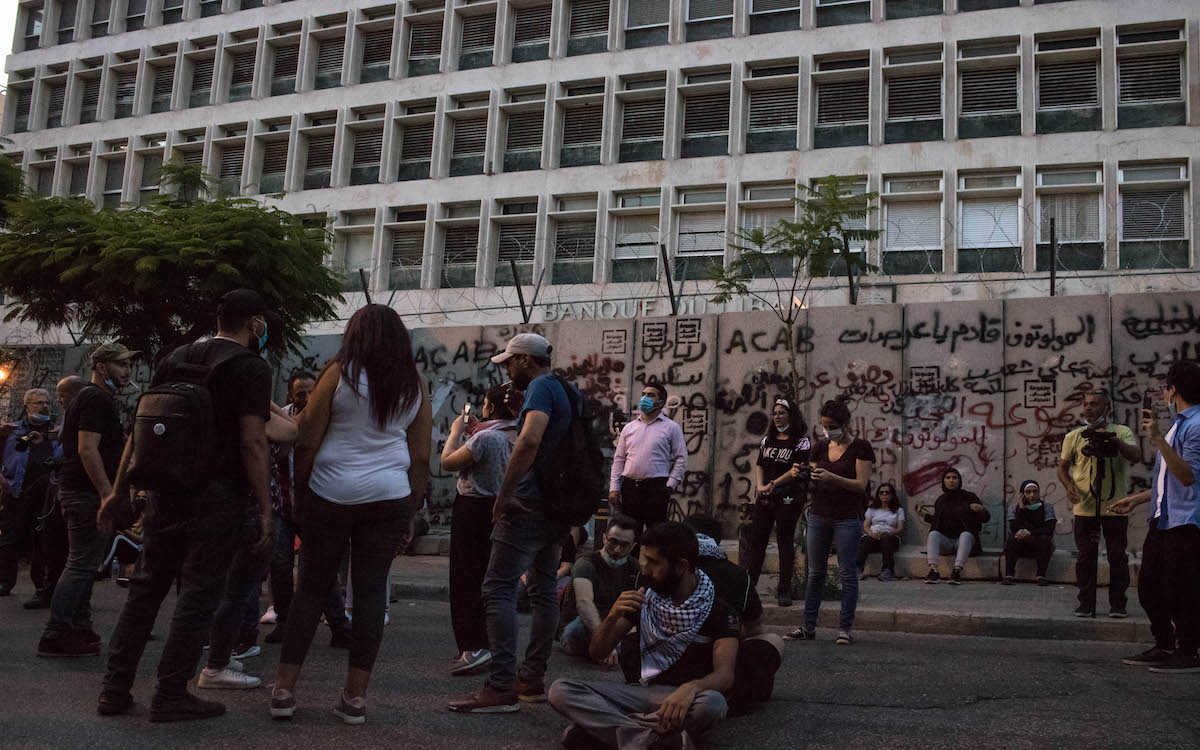
After more than three decades of the lira being pegged at 1,507 to $1, Lebanon’s Central Bank (BDL) has raised the official rate to 15,000 as part of an attempt to unify the various exchange rates. However, with the government’s repeated failure at passing and implementing economic and financial reforms in the four years of economic crisis, the unofficial rate has only continued to rise.
A much needed change: Since the economic crisis began in late 2019, there has been an increased need to set a new official exchange rate for the lira after it became clear that it would not be possible to return to the 1,507 rate.
- Instead of doing this, as the lira continued to devalue on the parallel market, the Central Bank issued half-measures in the hopes of bringing down the black market rate.
- These measures included circulars that set a “bank rate” in which depositors could withdraw from their dollar accounts at a rate higher than the official 1,507 rate, initially set at 3,900 and then raised to 8,000.
- While depositors were able to withdraw money at a higher rate, it was still significantly less than the black market rate, which has remained several times higher than the “bank rate” and only serves to put more lira in the market, which adds to the already devastating inflation.
- When these circulars did not work, BDL introduced its Sayrafa platform which was meant to be an alternative to the black market, but it is only available at specific banks and was still set at a rate much lower than that of the black market. Currently, the Central Bank has the Sayrafa rate set at 42,000.
No reforms: On top of the ineffective attempts by BDL to bring down the rate, Lebanon’s political class has also consistently failed at passing any type of reforms that would have an impact on reshaping the country’s economy and help bring Lebanon out of the crisis.
- In the four years of crisis, Parliament has still not passed any formal capital control laws that would dictate how banks operate; instead, they have chosen to allow the banks to implement their own informal capital controls that have drastically limited what depositors can do with their money.
- The country’s economic and financial sectors are also in the need of serious reforms, none of which have been passed by Parliament.
- Even after reaching a staff-level agreement with the International Monetary Fund, which could see billions of desperately needed dollars flow into Lebanon, the government has continued to take its time in implementing any of the required changes to unlock these funds.
A new rate: The new 15,000 official exchange rate is meant to work towards a unified exchange rate, one of the requirements set by the IMF, but experts do not expect it to have a significant impact.
- “These are not solutions. These are just actions that they are taking with very narrow goals that are harmful in the macro sense because they just don’t solve anything,” Mike Azar, a financial expert, previously told NOW in the lead-up to the new official exchange rate coming into effect.
- The 15,000 rate is also a far cry from the black market rate, which is currently sitting at around 64,000 to $1, an increase from nearly 59,000 the day prior and a new all-time low.
- This new rate will also do little to bring down prices and is more than likely to do the opposite by raising inflation.
- The Central Bank will be printing more lira, increasing the amount already in circulation, giving people more money to spend. This will cause prices to rise and the black market rate to increase as well essentially canceling out any benefits from raising the official rate.
What next: In the short-term, depositors will enjoy having more lira in their pockets and having increased spending power, but this will be short-lived as inflation and the black market rate increase.
In order to have any meaningful impact on the economic situation in the country, reforms that restructure Lebanon’s collapsing economy need to be passed and implemented. Without them, the country will just continue turning in a vicious cycle of the government implementing half-measures that provide short-term relief that leads to long-term pain.
For more on Lebanon’s new official exchange rate, you can read a more in-depth look at what it will mean for the country here.
Nicholas Frakes is a senior reporter with @NOW_leb. He tweets @nicfrakesjourno.








